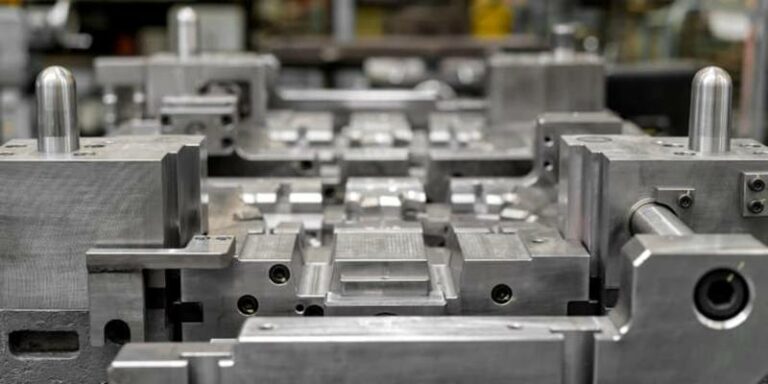The Main Principles Of Stahl Specialty Company
The Main Principles Of Stahl Specialty Company
Blog Article
Rumored Buzz on Stahl Specialty Company
Table of ContentsStahl Specialty Company for DummiesThe 8-Second Trick For Stahl Specialty CompanyStahl Specialty Company Fundamentals ExplainedMore About Stahl Specialty CompanyThe Of Stahl Specialty Company
The refined distinction hinges on the chemical web content. Chemical Contrast of Cast Aluminum Alloys Silicon promotes castability by decreasing the alloy's melting temperature and enhancing fluidity throughout spreading. It plays an essential role in enabling intricate mold and mildews to be filled up accurately. Furthermore, silicon contributes to the alloy's strength and wear resistance, making it important in applications where resilience is important, such as automobile parts and engine parts.It additionally boosts the machinability of the alloy, making it easier to process into ended up products. In this means, iron adds to the general workability of light weight aluminum alloys.
Manganese adds to the stamina of aluminum alloys and enhances workability. It is typically made use of in wrought light weight aluminum items like sheets, extrusions, and profiles. The existence of manganese aids in the alloy's formability and resistance to breaking during fabrication processes. Magnesium is a lightweight aspect that gives toughness and influence resistance to aluminum alloys.
Zinc improves the castability of aluminum alloys and helps manage the solidification process throughout casting. It improves the alloy's toughness and firmness.
All About Stahl Specialty Company
Because aluminum-silicon alloys have excellent casting buildings, high gas residential properties, easy processes, and excellent rust resistance, aluminum-silicon alloys are most typically utilized in the die-casting sector in the house and abroad. At the exact same time, aluminum-silicon alloys are additionally reasonably very early and widely identified alloys created and used in die-casting. After constant research study and improvement, the majority of the present worldwide mainstream aluminum-silicon alloys have actually been finalized and are nothing even more than A356, A360, A380, ADC12, B390, and A413.
The main thermal conductivity, tensile toughness, return toughness, and prolongation vary. Amongst the above alloys, A356 has the highest possible thermal conductivity, and A380 and ADC12 have the lowest.

How Stahl Specialty Company can Save You Time, Stress, and Money.
In precision casting, 6063 is well-suited for applications where elaborate geometries and high-quality surface finishes are critical. Instances include telecommunication units, where the alloy's premium formability permits streamlined and aesthetically pleasing designs while keeping structural integrity. In the Lighting Solutions market, precision-cast 6063 parts develop elegant and efficient illumination fixtures that need detailed forms and good thermal performance.
(https://www.bitchute.com/channel/CXjDol1cuosT)
It brings about a better surface area finish and much better corrosion resistance in A360. The A360 exhibits premium prolongation, making it excellent for complicated and thin-walled elements. In precision casting applications, A360 is fit for sectors such as Consumer Electronic Devices, Telecommunication, and Power Tools. Foundry. Its enhanced fluidness enables intricate, high-precision parts like smartphone casings and communication device real estates.

In accuracy spreading, light weight aluminum 413 beams in the Consumer Electronic Devices and Power Devices industries. It's commonly used to craft intricate elements like smart device housings, electronic camera bodies, and power tool housings. Its accuracy is amazing, with limited tolerances as much as 0.01 mm, making sure remarkable item assembly. This alloy's superior corrosion resistance makes it a superb choice for outdoor applications, guaranteeing lasting, durable items in the pointed out sectors.
The 7-Second Trick For Stahl Specialty Company
The aluminum alloy you select will substantially influence both the spreading procedure and the properties of the final product. Due to the fact that of this, you have to make your choice meticulously and take an educated approach.
Determining the most ideal light weight aluminum alloy for your application will suggest evaluating a large selection of features. These comparative alloy attributes follow the North American Pass Away Casting Organization's standards, and we've divided them right into two categories. Casting Foundry. The first group addresses alloy features that affect the production procedure. The second covers features affecting the homes of the end product.
The alloy you select for die spreading directly impacts a number of aspects of the casting process, like just how easy the alloy is to collaborate with and if it is susceptible to casting flaws. Warm fracturing, also called solidification cracking, is a typical die casting issue for light weight aluminum alloys that can cause interior or surface-level tears or fractures.
Stahl Specialty Company Fundamentals Explained
Specific light weight aluminum alloys are extra vulnerable to warm splitting than others, and your choice must consider this. Another common issue found in the die casting of light weight aluminum is die soldering, which is when the cast stays with the die wall surfaces and makes ejection hard. It can harm both the cast and the die, so you must look for alloys with high anti-soldering properties.
Rust resistance, which is currently a remarkable feature of aluminum, can vary significantly from this source from alloy to alloy and is an essential particular to consider depending on the ecological problems your product will certainly be exposed to. Wear resistance is an additional property generally looked for in aluminum items and can differentiate some alloys.
Report this page